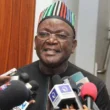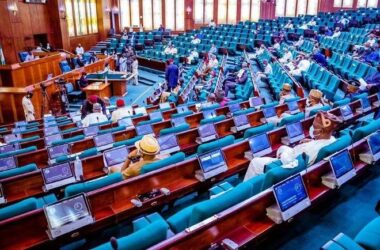The Federal Government of Nigeria has introduced the National Broadband Alliance (NBAN), a new initiative aimed at improving internet access and strengthening the country’s digital infrastructure.
The announcement was made in Lagos on Tuesday by the Minister of Communications, Innovation, and Digital Economy, Bosun Tijani. He was represented at the event by the Executive Vice Chairman of the Nigerian Communications Commission, Aminu Maida.
Tijani noted that the initiative would significantly boost broadband penetration in Nigeria, which has grown from just 6% in 2015 to about 42% as of October 2024. He stated that despite this progress, more efforts are needed to ensure that every Nigerian has access to fast and reliable internet services.
As part of this initiative, the government is utilizing a Special Purpose Vehicle to lay 90,000 kilometers of fiber-optic cables across the country. This project is expected to improve connectivity in underserved and rural areas, ensuring that more Nigerians can access high-speed internet.
The minister noted that the NBAN aligns with the Renewed Hope Agenda of President Bola Ahmed Tinubu, which focuses on innovation, technology, and collaboration as key elements for national development. He added that expanding broadband access would not only improve connectivity but also empower people in remote areas by creating more opportunities for education, business, and communication.
Tijani also noted the importance of partnerships with investors, donors, and other key stakeholders in achieving the targets set in the National Broadband Plan (2020–2025). These collaborations, he said, will help overcome infrastructure challenges and make broadband services more affordable for Nigerians.
He further stated that the government aims to reach 70% broadband penetration by 2025, provide a minimum internet speed of 25 Mbps in urban areas, and ensure that 80% of the population has broadband access by 2027.
“Achieving these goals will require more than just the efforts of the private sector. It will require a holistic approach that includes strategic partnerships with donors, investors, and other key stakeholders in accelerating the rollout of critical infrastructure,” Tijani said.










